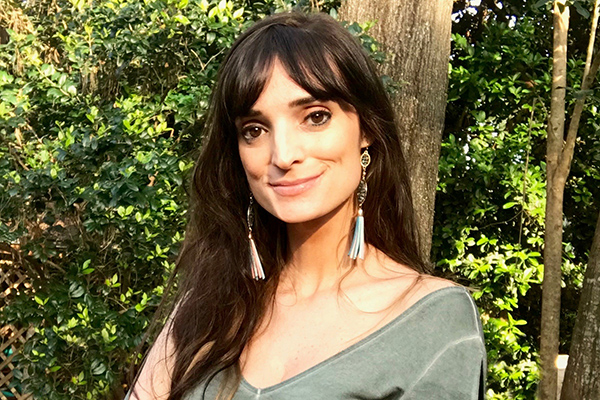Dyan Neary

"Changing how history is remembered and stories are told."
College: Arts and Sciences
Degree Program: English - Creative Writing
Degree: Doctorate
Award: Writer's Digest Annual Writing Award (2017); P.E.O Scholar Award (2019)
Video Credit: Enrique Toledo
Why FSU?
I can’t speak highly enough of my professors at FSU, or the level of support, inspiration, respect, and generosity I have received here. I also love working in a department where my fellow graduate students are unfailingly encouraging of one another. It’s a wonderful community.
Motivation to pursue a graduate degree
I had been working as a freelance journalist, and knew that I wanted to write and teach, because when you’re passionate about something you want to share it, and I get to do that through teaching. I have designed and taught upper-level courses, and currently I’m teaching two advanced journalism seminars. My students are so driven and engaged, both with their writing projects and with the world around them, that they regularly send me back to the drawing board of my own work to be reinvigorated and inspired. It’s a gift to watch them grow as writers. Some of my students have won awards for the writing they produced, while others have gone on to have their articles published.
Importance of research and work
My research and work as a graduate student are inextricably linked to my commitment to literacy among incarcerated people. Last year, I began writing a book of short creative nonfiction vignettes that collectively chronicle a history of American confinement. As a journalist and scholar of creative writing, I believe in staying steadfast to truth within the genre but using research to readdress a history of criminal punishment that has always been curated by those in power. Perhaps we arrive closer to the truth only when previously silenced voices are given sound.
Through artful, storied prose, the book will illustrate how an unrivaled mechanism of punishment has impounded 2.3 million of our nation’s residents into penitentiaries. The concept for this dissertation was inspired by the many years I’ve spent doing volunteer and educational work inside U.S. prisons. Moreover, many scholars, even those in the field of criminal justice, have little to no contact with those most affected by legislative policies and sentencing guidelines—namely, inmates. I hope that my work will address this reverse accessibility issue, providing a window into the world of an unseen and misunderstood community, and that readers will come to a greater understanding of the effects of confinement on the human psyche.
Advice for prospective graduate students
Remember that there is a big wide world outside of academia, so try to use your time in graduate school to find ways to be of service to people who don’t have easy access to the ivory tower.
Career aspirations
My role as an educator goes beyond the scope of the university classroom. How we advance literacy among communities outside of the academy reveals where we, as writing scholars, place our attention. At FSU, I assist my students with internships, pitch letters, and publishing, sometimes long after they’ve left my class. I look forward to applying for a tenure-track teaching position as I continue to publish articles and books. Employing the same research-driven, creative styles in my teaching assignments that I do in my writing, I’d like to change the way history is remembered and stories are told.
Accomplishments during graduate career
I’m immensely proud of my students in the creative writing class that I created at the Gadsden Correctional Facility, a women’s prison in Quincy, Florida. Some days their submissions are so harrowing I cry in the car for most of the hour-long drive home, but on other days laughter overtakes the room so that I almost forget we are inside the walls of an institution. I upload their writing to Inside Voices, a web site I created to showcase their work and to be an instructional tool for those interested in taking up this important work. It may have been the teenage girl serving a double-digit sentence in Arizona for credit card fraud asking for books on spirituality, or the inmate requesting books about sign language, because he’d started losing his hearing and was going to die in prison. But I suspect it was the man on death row in Texas who was murdered before I had the chance to fill his book request. The experiences I had volunteering with Books Through Bars left me with a visceral need to help incarcerated people.
Last year, I started a creative writing class at the Palmer Munroe Teen Center. One week I asked the young people to do a writing exercise where they had to come up with concrete images for a series of self-selected abstractions. For freedom, one student, a sixteen-year old girl, wrote, “A statistic—because even with everything working against me, I have the freedom not to become a statistic.”
I’m also thrilled that at the Southeast Review, where I serve as nonfiction editor, we now publish essays by incarcerated people in every issue. More than any of these things, I’m awed and inspired by the little human I’m raising, who surprises me with her general awesomeness every day. I hope I can keep making her as proud as she makes me. FSU News-English Doctoral Student Spearheads Literacy Program for Incarcerated Individuals.
I am a 2019 recipient of the Department of English inaugural Adam M. Johnson Fellowship and a PEO Scholar Award.
